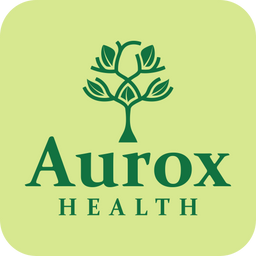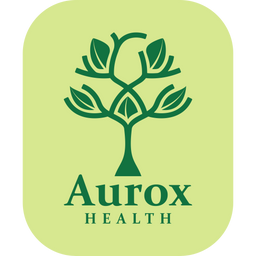Introduction 🚴♂️💪
A strong immune system is essential for cyclists, especially during intense training sessions. Keeping your immune system in top shape helps you stay healthy and perform at your best. Intense exercise can temporarily weaken your immune function, making you more susceptible to illnesses. This is where supplements come into play. They can support your immune health and help you recover faster, ensuring you stay on track with your training goals.
From the article you will learn:
- Top 5 Supplements for Better Immunity of Cyclists
- Herbal Supplements for Cyclists
1. Vitamin C 🍊
Vitamin C, scientifically known as ascorbic acid, is a vital nutrient renowned for its immune-boosting properties. It serves as a potent antioxidant, helping to protect cells from damage caused by free radicals generated during intense physical activities like cycling. For cyclists, whose immune systems can be compromised by rigorous training, Vitamin C supports the production and function of white blood cells, critical for immune defense.
Cyclists often experience increased susceptibility to upper respiratory tract infections due to prolonged and intense exercise. Vitamin C aids in reducing the duration and severity of common colds and infections, potentially minimizing training interruptions and promoting quicker recovery. Moreover, it supports collagen synthesis, essential for maintaining healthy connective tissues, which is beneficial for joint health and overall performance.
Benefits of Vitamin C for cyclists:
-
Reducing the duration of colds: Vitamin C has been shown to shorten the duration of cold symptoms, allowing cyclists to recover faster and get back to training sooner.
-
Protecting against oxidative stress: As an antioxidant, Vitamin C helps combat oxidative stress induced by exercise, which can contribute to muscle fatigue and cell damage.
-
Supporting immune function: By enhancing the production of white blood cells and antibodies, Vitamin C strengthens the immune response, helping cyclists stay healthy during intense training phases.
Recommended best sources:
Cyclists should eat different fruits and vegetables to get enough Vitamin C. They can include oranges, strawberries 🍓, kiwi 🥝, bell peppers, and broccoli 🥦. When dietary sources are insufficient or impractical, supplements can provide a convenient and reliable way to maintain optimal Vitamin C levels.
Understanding the role of Vitamin C in immune support underscores its importance for cyclists striving to maintain peak performance and overall health. Integrating Vitamin C-rich foods and supplements into their daily regimen can help optimize immune function and enhance training outcomes.
2. Vitamin D ☀️
Vitamin D, often referred to as the "sunshine vitamin," plays a crucial role in immune function and overall health. It is essential for cyclists who spend significant time outdoors training, as it supports various physiological functions critical for optimal performance and well-being.
Vitamin D is integral to the regulation of the immune system, promoting the innate and adaptive immune responses necessary for defending against infections. It enhances the function of immune cells, including macrophages and T cells, which are vital for identifying and neutralizing pathogens.
For cyclists, Vitamin D is particularly beneficial due to its role in supporting respiratory health. Intense and prolonged cycling sessions can strain the respiratory system, making cyclists more susceptible to respiratory infections. Vitamin D helps maintain the integrity of the respiratory epithelium and modulates inflammation in the lungs, potentially reducing the risk of infections and improving lung function.
By reducing inflammation and promoting lung function, Vitamin D can enhance respiratory health, thereby supporting cyclists in maintaining optimal performance during training and competition.
Sources of Vitamin D:
-
Sunlight 🌞: The primary natural source of Vitamin D is sunlight. When exposed to sunlight, the skin synthesizes Vitamin D3. Cyclists who train outdoors regularly benefit from natural Vitamin D production.
-
Dietary sources: While limited, some foods contain Vitamin D, such as fatty fish 🐟 (e.g., salmon, mackerel), egg yolks 🥚, and fortified foods (e.g., fortified milk 🥛 and cereals).
-
Supplements: In cases where sun exposure and dietary intake are inadequate, Vitamin D supplements, typically in the form of Vitamin D3, can ensure sufficient levels.
Understanding the importance of Vitamin D for immune function and respiratory health underscores its relevance for cyclists. Ensuring adequate Vitamin D levels through sunlight exposure, dietary sources, or supplements can optimize overall health and support peak cycling performance.
3. Probiotics
Probiotics are essential for maintaining robust gut health, which plays a pivotal role in supporting a strong immune system. For cyclists, whose intensive training schedules can place significant demands on their bodies, ensuring optimal gut health is crucial for overall well-being and performance.
The gut houses trillions of bacteria that contribute to digestion, nutrient absorption, and importantly, immune function. A healthy gut microbiome helps regulate immune responses, ensuring that the body can effectively combat infections and inflammation.
Benefits of probiotics for cyclists:
-
Digestive health: Intense training can sometimes lead to gastrointestinal distress, such as bloating or diarrhea. Probiotics help maintain a balanced gut flora, promoting smoother digestion and reducing digestive discomfort during and after rides. Probiotics promote the breakdown of food and absorption of nutrients, optimizing energy utilization and recovery.
-
Immune support: By supporting a healthy gut environment, probiotics bolster the immune system. This can be particularly advantageous for cyclists, who may experience immune suppression due to the physical stress of training. Strengthening immune defenses helps cyclists stay healthy and maintain consistent training routines.
Best sources of probiotics:
-
Fermented foods: Examples include yogurt, kefir, sauerkraut, kimchi, and miso. These foods naturally contain beneficial bacteria that contribute to gut health.
-
Probiotic supplements: Available in various forms such as capsules, tablets, and powders, probiotic supplements provide concentrated doses of beneficial bacteria.
Types of probiotic supplements and recommended usage:
-
Lactobacillus and Bifidobacterium strains: These are commonly found in probiotic supplements and are known for their digestive and immune benefits. Recommended daily dosages vary depending on the specific strain and formulation.
Incorporating probiotics into a cyclist's daily regimen supports gut health, enhances digestion, and fortifies immune defenses, thereby optimizing performance and overall well-being. Regular use of probiotics, alongside a balanced diet and proper hydration, contributes to sustained health benefits for cyclists.
4. Zinc 🌟
Zinc plays a critical role in immune support and wound healing, making it indispensable for cyclists who push their physical limits during training and competition.
Zinc is essential for the proper functioning of the immune system, where it supports various immune processes, including the development and function of immune cells. Additionally, zinc is crucial for wound healing, promoting tissue repair and regeneration.
Benefits of zinc supplementation for cyclists:
-
Reducing the risk of infections: Intensive training can temporarily suppress the immune system, increasing susceptibility to infections. Zinc supplementation helps maintain immune function, reducing the likelihood of illnesses that could disrupt training schedules.
-
Immune support: Zinc enhances the production and activity of immune cells, aiding in the body's defense against pathogens encountered during training or racing.
-
Wound healing: Cycling can occasionally lead to minor cuts, scrapes, or bruises. Zinc supports faster healing of these injuries, allowing cyclists to recover quicker and return to training sooner.
Best sources of zinc:
-
Food sources: Zinc-rich foods include lean meats 🥩, seafood (especially oysters 🦪), nuts 🥜, seeds, dairy products 🧀, and whole grains 🌾. These foods provide zinc in a form that is readily absorbed by the body.
-
Supplements: Zinc supplements are available in various forms such as zinc gluconate, zinc citrate, and zinc sulfate.
Ensuring adequate zinc intake through diet and supplementation supports immune resilience and facilitates faster recovery from physical exertion for cyclists. By incorporating zinc-rich foods and supplements into their nutritional strategy, cyclists can optimize their performance and maintain peak health throughout their training and competitive seasons.

5. Herbal Supplements 🌿
Herbal supplements play a crucial role in supporting immune health, especially during periods of intense training. These supplements derive their effectiveness from natural compounds that enhance the body's immune response and overall resilience.
Explanation of Popular Herbs:
-
Echinacea: Widely recognized for its ability to stimulate the immune system, echinacea is often used to reduce the severity and duration of cold symptoms. It contains active compounds like alkamides and polysaccharides that support immune cell function.
-
Elderberry: Known for its antioxidant and antiviral properties, elderberry is rich in flavonoids like anthocyanins. It helps combat colds and flu by inhibiting viral replication and boosting immune activity.
-
Astragalus: Used in traditional Chinese medicine, astragalus enhances immune function by stimulating white blood cell production and supporting the body's natural defenses against pathogens.
How These Herbs Support Immune Function During Intense Training: During intense physical exertion, the body undergoes stress that can compromise immune function temporarily. Herbal supplements like echinacea, elderberry, and astragalus bolster the immune system's ability to respond to stressors, potentially reducing the risk of infections and promoting faster recovery.
Recommended Forms and Dosages:
-
Forms: Herbal supplements are available in various forms such as capsules, tablets, teas, and tinctures. Each form offers distinct advantages in absorption and convenience.
-
Dosages: Dosages can vary based on the specific product and concentration. It's advisable to follow manufacturer recommendations or consult with a healthcare provider for personalized guidance.
Incorporating these herbal supplements into a daily routine can provide added support for immune health, ensuring cyclists maintain peak performance and well-being throughout their training regimens.
Conclusion and Recommendations
In conclusion, the immune support supplements like Vitamin C, D, probiotics, zinc, and herbal supplements help cyclists.
Recap of Key Supplements:
-
Vitamin C aids in boosting immune function, reducing the duration of illnesses, and protecting against oxidative stress.
-
Vitamin D supports respiratory health and overall immune function, crucial during intense training.
-
Probiotics enhance gut health, thereby improving digestion and bolstering immune response.
-
Zinc contributes to immune support and wound healing, reducing the risk of infections.
-
Herbal supplements like echinacea, elderberry, and astragalus provide natural immune-boosting properties that help combat infections and support overall immune resilience.
Suggestions for Incorporation: To optimize immune health:
-
Consistency: Incorporate supplements daily to maintain immune resilience.
-
Variety: Rotate supplements to cover a broad spectrum of immune support.
-
Hydration and Nutrition: Support supplement intake with a balanced diet and adequate hydration.
Explore our selection of high-quality immune support supplements tailored for cyclists and athletes. Prioritize your immune health to enhance performance and well-being during intensive training and competition.
🌿🚴♂️ Take charge of your immune health today! Visit https://auroxhealth.com to discover our range of immune support supplements.





